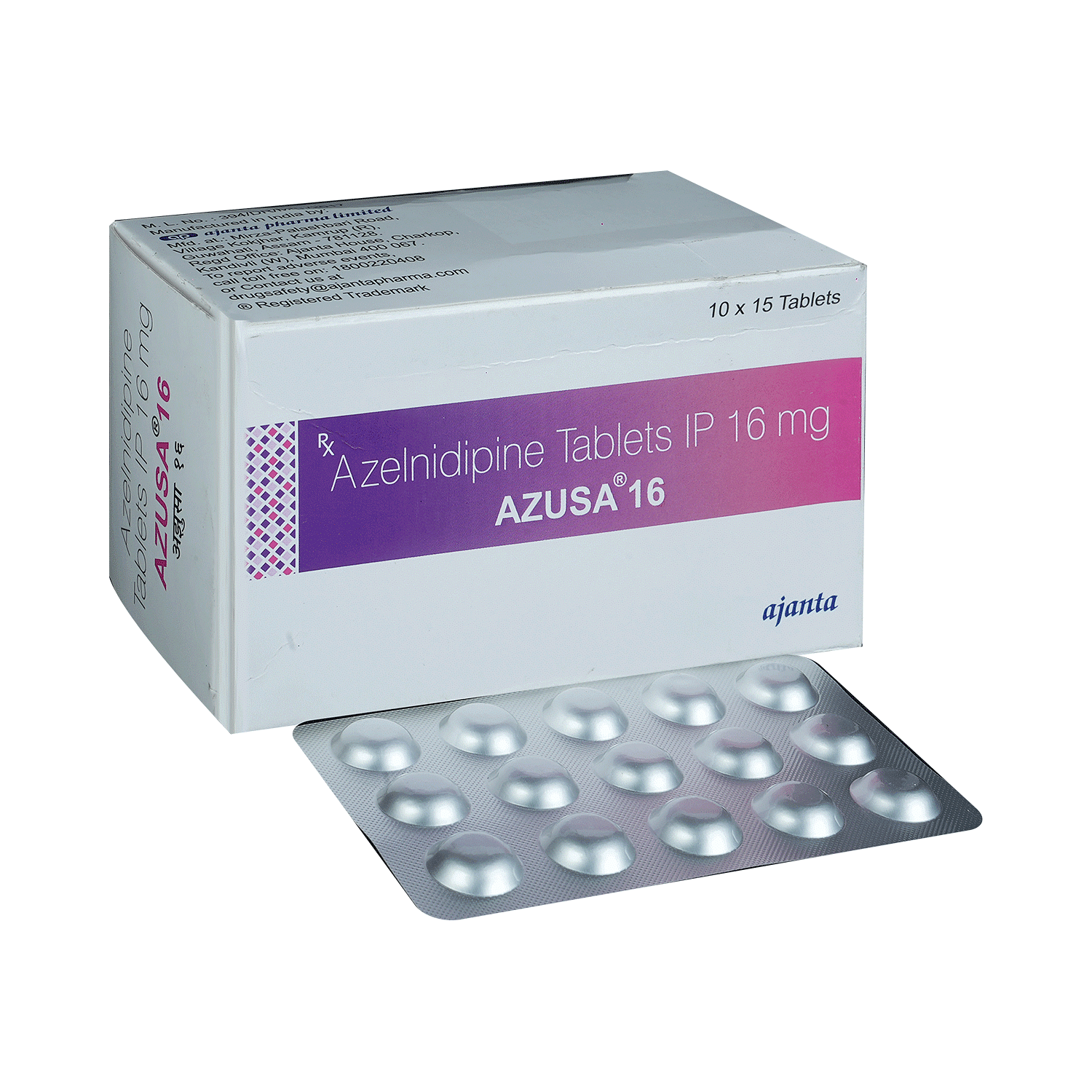
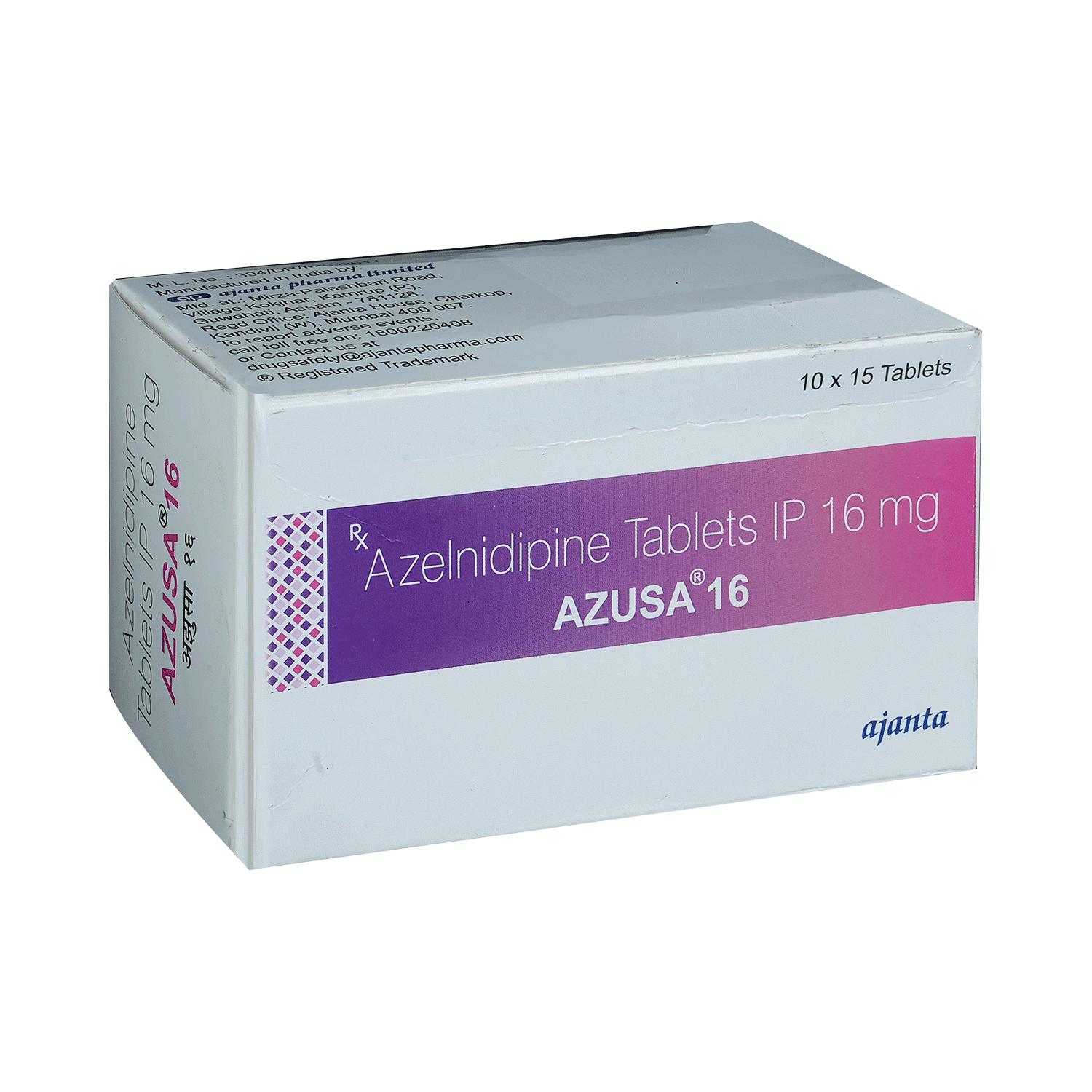
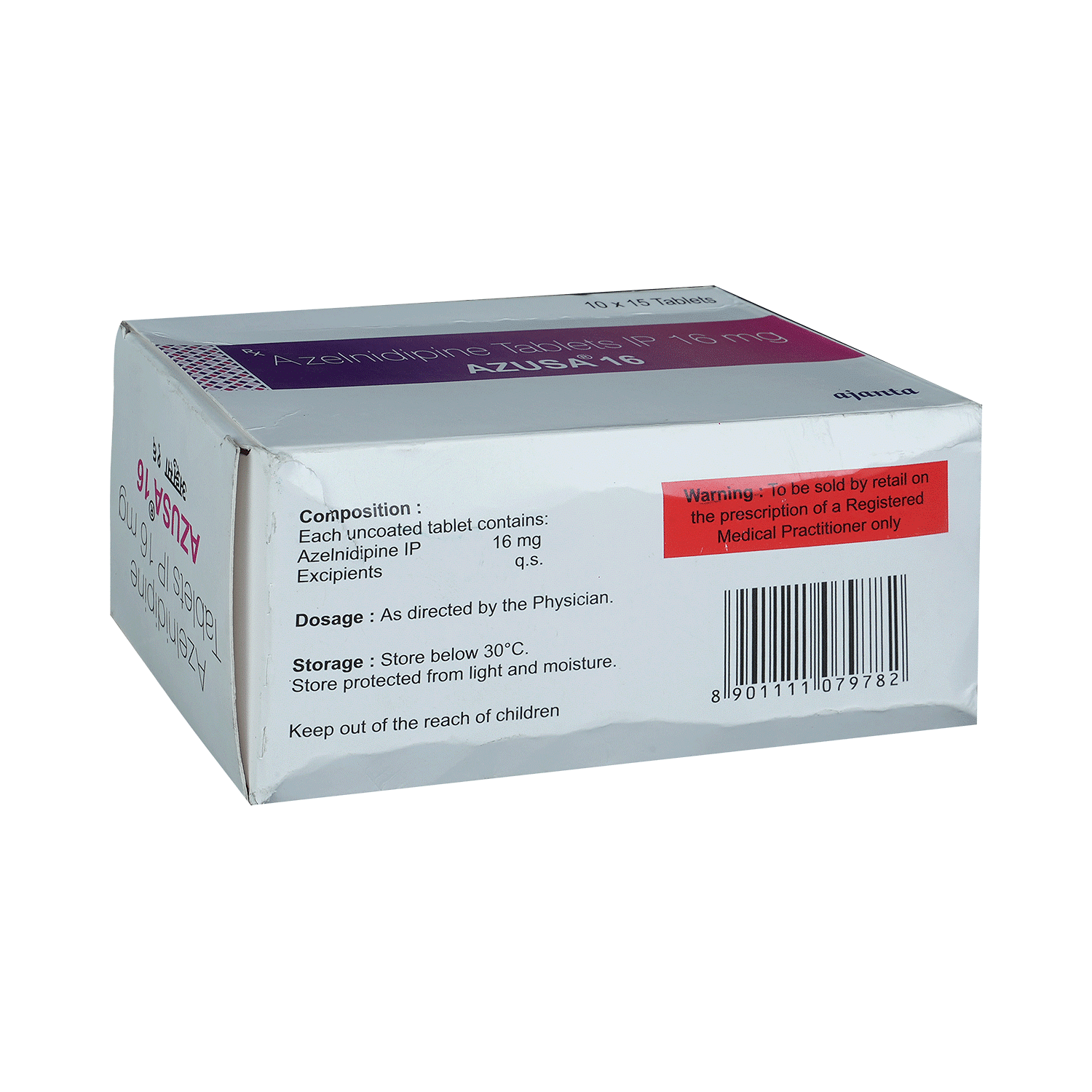
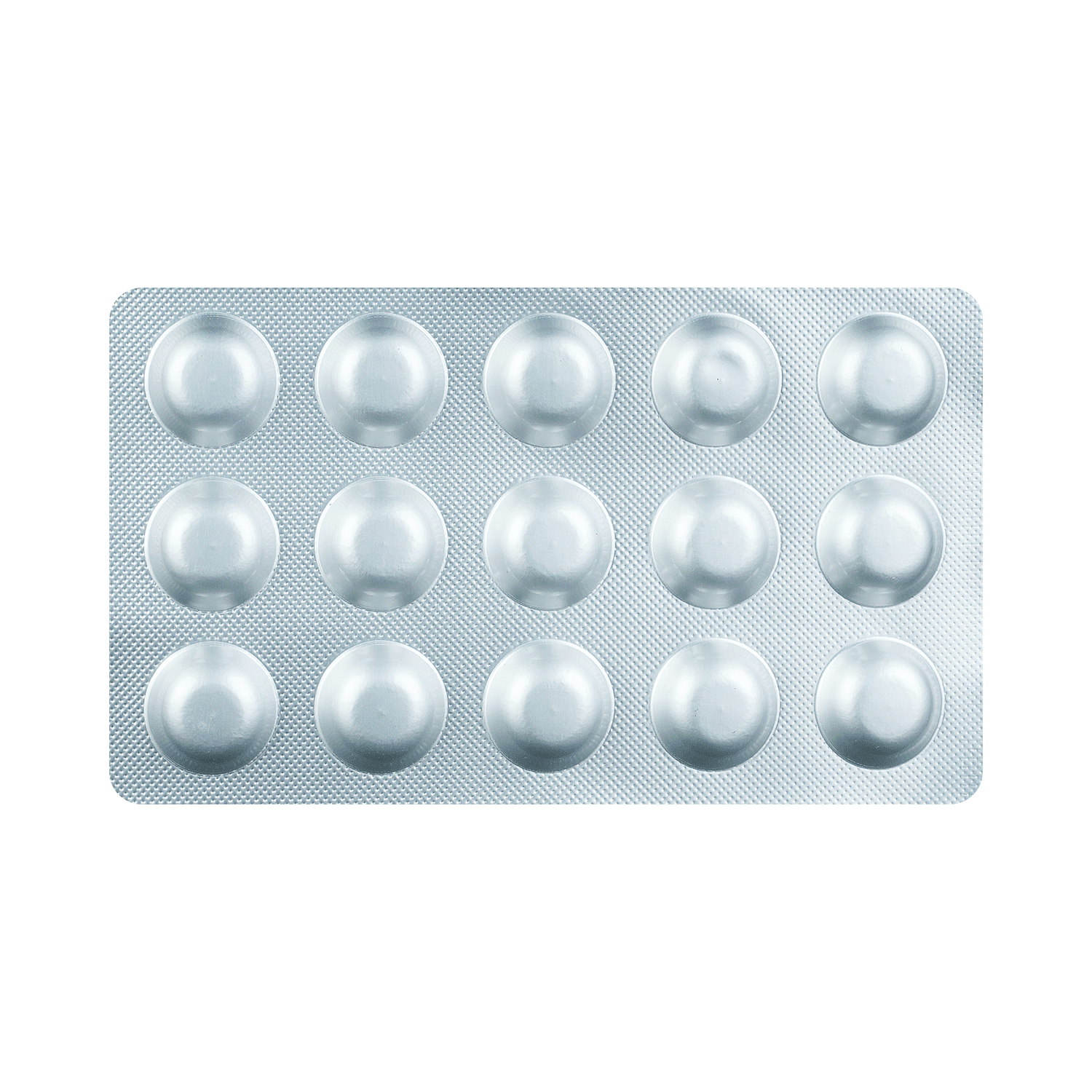

Azusa 16 Tablet
Manufacturer
Ajanta Pharma Ltd
Salt Composition
Azelnidipine (16mg)
Key Information
Short Description
Azusa 16 Tablet is a medicine used to treat high blood pressure (hypertension). It belongs to a class of medicines known as calcium channel blocker which helps to lower blood pressure and reduce the workload of the heart.
Dosage Form
Tablet
Introduction
Azusa 16 Tablet may be prescribed alone or along with other medicines. The dose depends on your blood pressure levels and the severity of your condition. You can take it at any time of the day with or without food but it is best to take it at the same time each day. Keep taking it for as long as advised by your doctor. Do not stop this medicine on your own even if you feel well because high blood pressure often has no symptoms. This makes it hard to identify any sudden spike and if you stop taking it your condition may get worse.
Directions for Use
Take this medicine in the dose and duration as advised by your doctor. Swallow it as a whole. Do not chew, crush or break it. Azusa 16 Tablet may be taken with or without food but it is better to take it at a fixed time.
Safety Information
Side Effects
No common side effects listed.
Alcohol Warning
Caution is advised when consuming alcohol with Azusa 16 Tablet. Please consult your doctor.
Breastfeeding Warning
Information regarding the use of Azusa 16 Tablet during breastfeeding is not available. Please consult your doctor.
Pregnancy Warning
Information regarding the use of Azusa 16 Tablet during pregnancy is not available. Please consult your doctor.
Interacting Medicines
Amlodipine Aprepitant Atazanavir Atorvastatin
How it works
Azusa 16 Tablet is a calcium channel blocker. It regulates the blood pressure by relaxing the blood vessels and reducing the pressure on them thereby making it easier for the heart to pump more blood throughout the body.
Quick Tips
A sudden drop in your blood pressure may occur especially when you first start taking Azusa 16 Tablet. To lower the chance of feeling dizzy or passing out rise slowly if you have been sitting or lying down. It can cause ankle or foot swelling. To reduce the swelling raise your legs while you are sitting down. Talk to your doctor if it does not go away. It may cause dizziness. Do not drive or perform any activity that requires mental focus until you know how Azusa 16 Tablet affects you. Inform your doctor if you are pregnant planning a pregnancy or breastfeeding.
Related Medicines

Uniaz 16mg Tablets
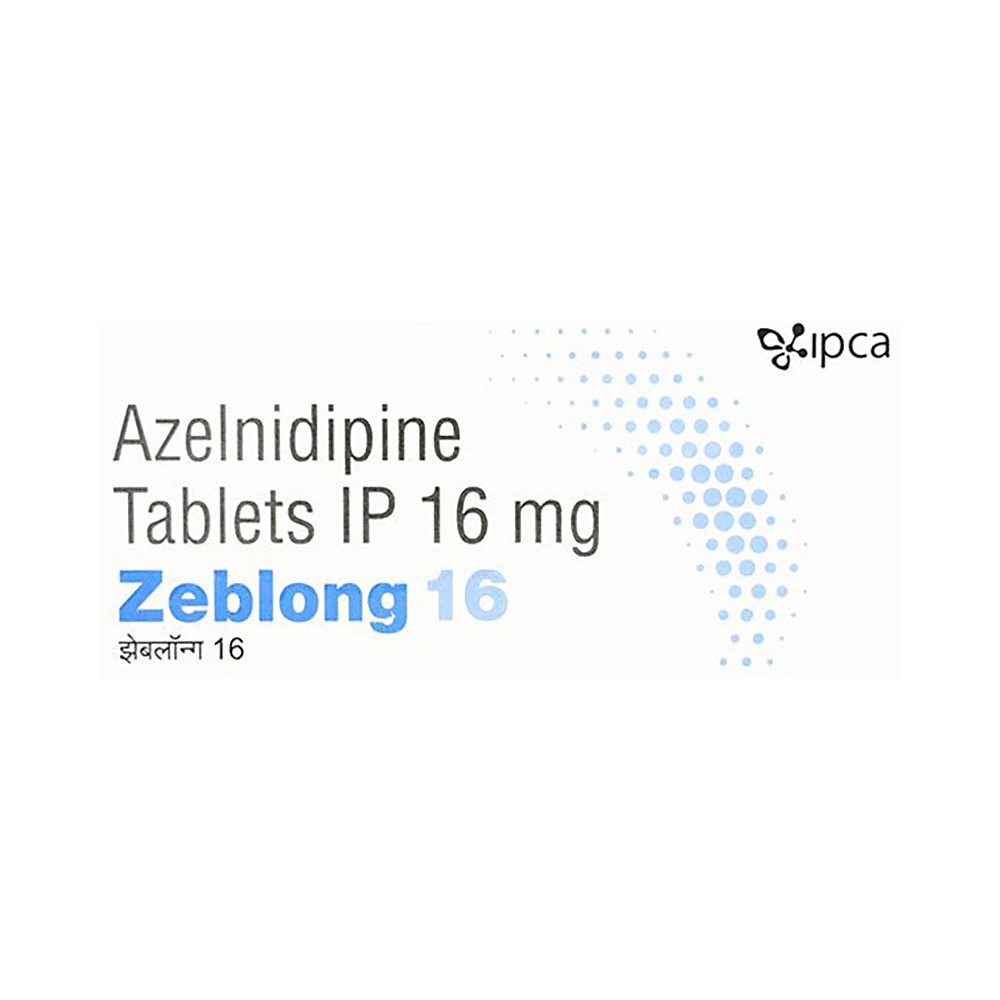
Zeblong 16mg Tablet
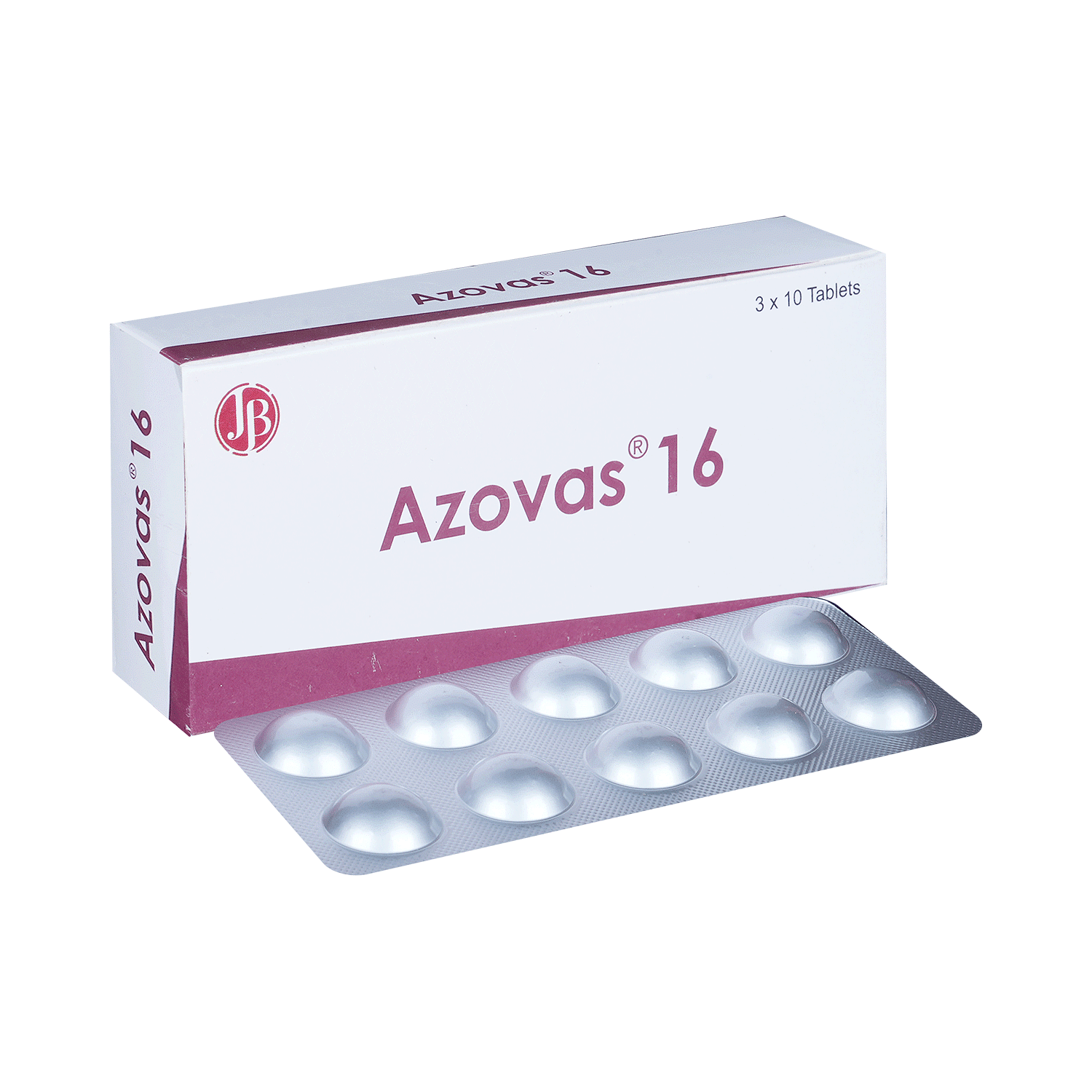
Azovas 16mg Tablet

Corazel 16mg Tablet

Azilpine 16 Tablet

Emdip 16mg Tablet
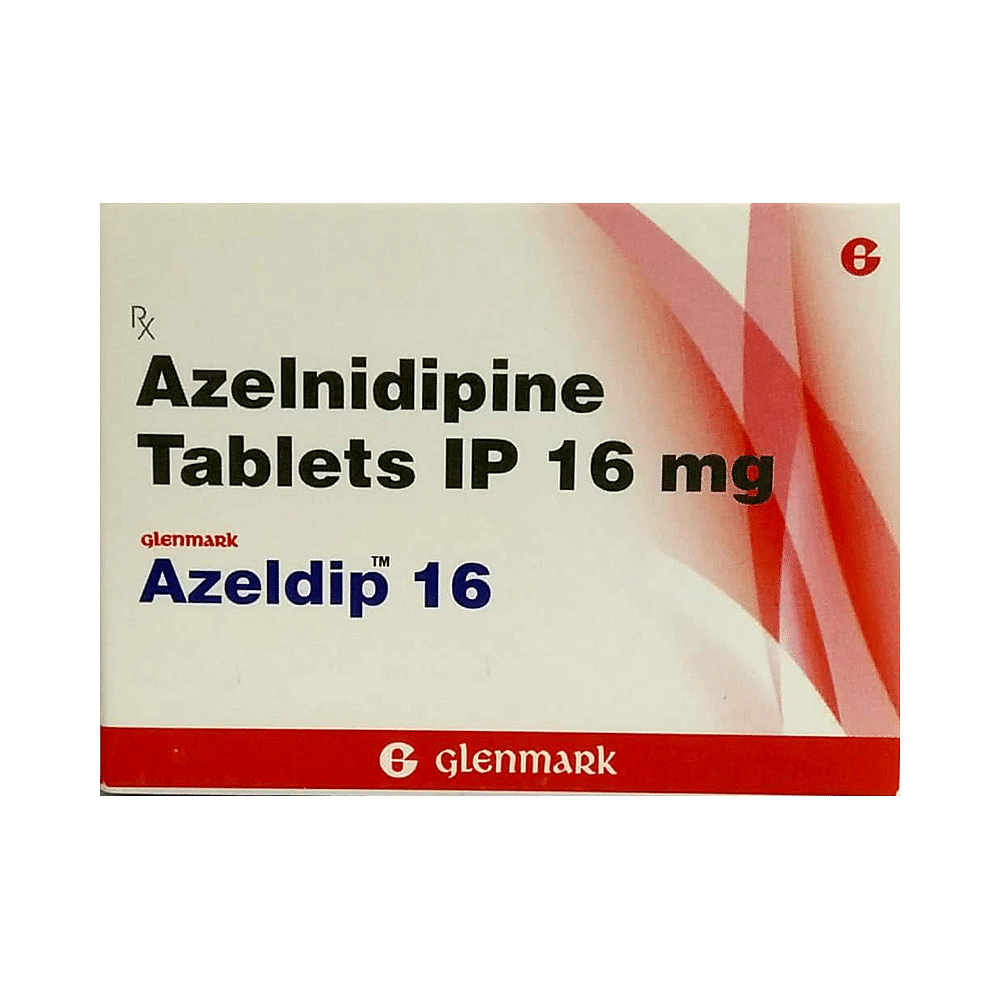
Azeldip 16 Tablet
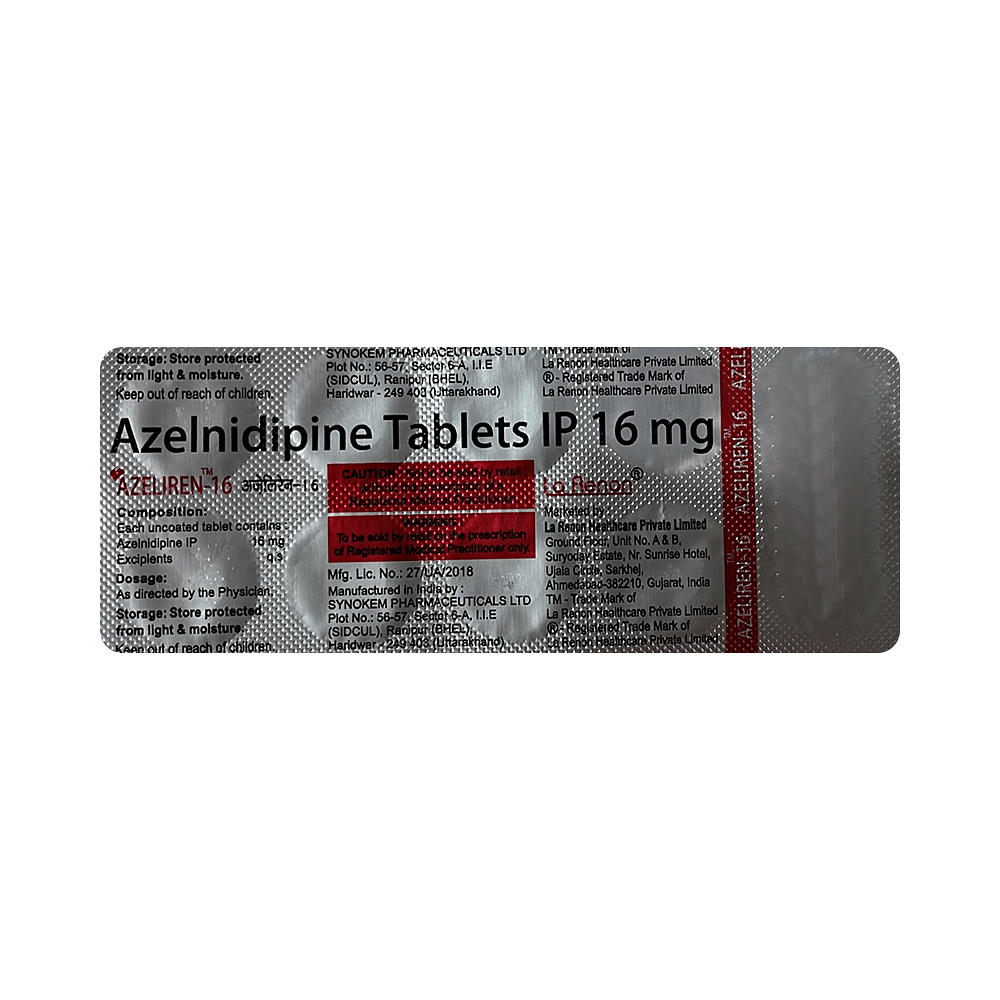
Azeliren 16mg Tablet

Ziantan 16mg Tablet

Azilta 16 Tablet
Frequently asked questions
What is the use of Azusa 16 Tablet?
Azusa 16 Tablet is used to treat hypertension (high blood pressure). It belongs to a class of medicines that block calcium channels in the blood vessels. This medicine works by relaxing the blood vessels in patients with high blood pressure, widening their diameter to help blood flow more easily.
Does Azusa 16 Tablet harm my kidneys?
There is no evidence that Azusa 16 Tablet causes kidney problems. It can be used in normal doses by patients with existing kidney issues. In fact, it helps prevent kidney injury caused by hypertension by lowering blood pressure.
When should I take Azusa 16 Tablet?
Azusa 16 Tablet can be taken anytime in the morning or evening; usually prescribed once daily. It's crucial to take it at the same time each day for consistent medication levels in the body. Ensure you always follow your doctor’s instructions.
How long should I take Azusa 16 Tablet?
Continue taking Azusa 16 Tablet for as long as your doctor recommends. Depending on your condition, you may need to take it long-term. Never stop medication without consulting your doctor. Abruptly stopping can lead to an increase in blood pressure and further worsening of the condition.
Is Azusa 16 Tablet a beta-blocker?
No, Azusa 16 Tablet is not a beta blocker. It belongs to a class of medicines known as calcium channel blockers. It lowers blood pressure by relaxing the blood vessels so that blood can flow more easily.
What are the serious side effects of Azusa 16 Tablet?
While rare, serious side effects of Azusa 16 Tablet include liver problems (yellowing skin, nausea, vomiting, loss of appetite), pancreatitis (severe stomach pain, nausea and vomiting), and recurrent chest pain, which may be a sign of a heart attack. However, these are rarely observed.
What should I avoid while taking Azusa 16 Tablet?
Before starting any new medications or supplements, always consult your doctor. Avoid grapefruit (chakotra) and grape juice consumption while on Azusa 16 Tablet. Adopt a low-sodium, low-fat diet as advised by your doctor.
I have developed ankle edema and swelling over my feet after using Azusa 16 Tablet. What should I do?
Azusa 16 Tablet can cause ankle or foot swelling. To alleviate this, raise your legs while sitting down. Consult your doctor if the swelling persists.


